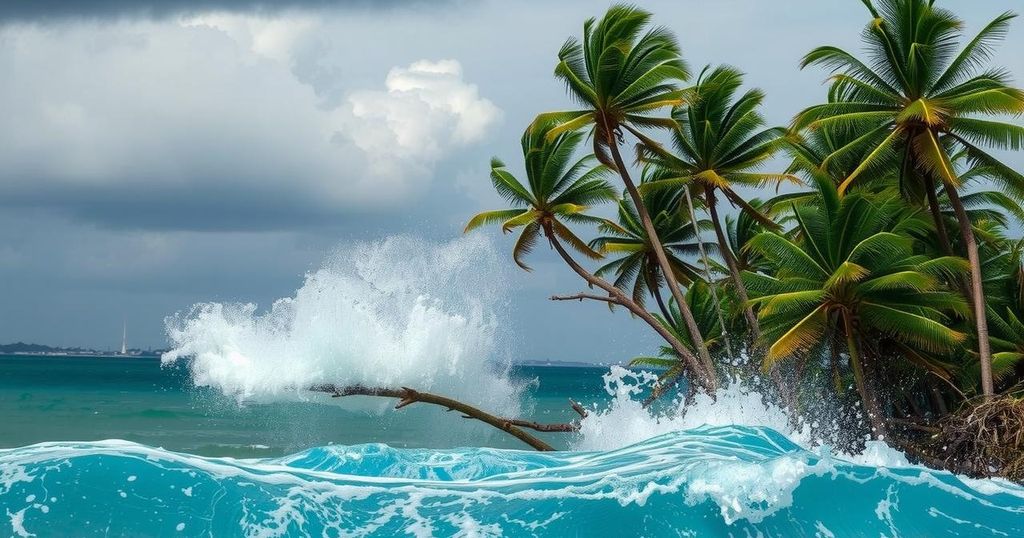Cyclone Chido has caused significant devastation in Mayotte, leading to hundreds of fatalities. Experts have commented on the challenges of forecasting intensity and the consequences of climate change on tropical storms. Enhanced resilience and preparation for communities in vulnerable regions are critical for mitigating future impacts.
On December 16, 2024, Cyclone Chido struck the French island of Mayotte, resulting in tragic fatalities numbering in the hundreds. Experts from the University of Reading provided insights on the cyclone’s development and its implications. Dr. Alex Baker noted that despite accurate forecasting of the cyclone’s track, the intensity of Cyclone Chido was somewhat underestimated. He emphasized the increased prevalence of rapid intensification events as a consequence of climate change. Furthermore, he highlighted the dire situation facing low-income communities, stating that resilience and preparedness against tropical cyclones need significant improvement in the region.
Dr. Helen Hooker remarked on the catastrophic consequences of Chido, particularly for a small island that lacks adequate infrastructure to accommodate evacuations during extreme events. She pointed out the links between climate change and the frequency of intense tropical cyclones, underscoring the critical need for enhanced warning systems and infrastructure investment to mitigate loss of life and property. The cyclone also generated severe flooding in Mozambique and threatened southern Malawi with continued heavy rainfall and winds.
Professor Liz Stephens asserted, “The intensity of tropical cyclones in the South West Indian Ocean has been increasing, this is consistent with what scientists expect in a changing climate – warmer oceans fuel more powerful storms.” She emphasized the vulnerability of small islands like Mayotte during such catastrophic events and advocated for improved resilience measures and evacuation infrastructure.
The situation in Mayotte serves as a significant reminder of the increasing risks posed by climate change, particularly for regions with limited resources to combat such disasters effectively. Experts advocate for the establishment of robust evacuation systems, drawing on successful strategies from other regions, such as Bangladesh, to better protect vulnerable communities from the impacts of future cyclones.
The recent landfall of Cyclone Chido on Mayotte highlights the challenges faced by small island communities in the face of increasingly severe tropical storms. Climate change has contributed to warmer ocean temperatures, which in turn fuel more powerful cyclones. The lack of infrastructure and resources in low-income areas exacerbates the devastation caused by such natural disasters. It is critical to understand the implications of these events on resilience and preparedness, particularly in regions like Southern Africa, where communities are at heightened risk from tropical cyclones.
Cyclone Chido’s impact on Mayotte underscores the urgent need for enhanced resilience and preparedness strategies for vulnerable coastal communities. Experts stress the importance of improving infrastructure to shelter populations during extreme weather events, along with effective early warning and communication systems. The interconnectivity between climate change and the increasing severity of tropical storms necessitates a cohesive response to safeguard lives and livelihoods in at-risk areas.
Original Source: www.reading.ac.uk






